Why do so many patients with hypothyroidism and Hashimoto’s suffer from brain fog?
Is there a connection between these two disease states?
The answer is yes and we are going to explore why in this post.
You’re about to learn why brain fog may be an early indicator of damage to your brain, what steps you can take to reverse this condition, and what steps you should be taking to prevent brain fog.
Let’s jump in…
Brain Inflammation & Brain Fog – How They Are Connected
It’s important to understand that Hashimoto’s disease is an inflammatory condition.
Hashimoto’s is an autoimmune condition that stems from disordered immune function in your body.
This means your body is attacking itself and the majority of this attack occurs in the thyroid gland.
For this reason, many patients with Hashimoto’s ultimately end up taking thyroid medication.
You may be aware that your body is attacking your thyroid gland, but did you also know it may be attacking your brain?
There appears to be some cross-reactivity between thyroid antibodies, inflammation, and your brain tissue.
The condition of Hashimoto’s encephalopathy highlights this important connection.
It has been shown that, rarely, people with Hashimoto’s develop a reversible cause of encephalopathy which is responsive to steroids.
The exact mechanism as to why this occurs is not well understood but we can learn more by taking a deeper look into how the food that you eat influences your body.
Hashimoto’s disease and gluten sensitivity seem to be closely linked (we will talk more about that later). Not only that, but parts of your brain in the cerebellum and parts of gliadin (AKA gluten) look almost identical (1).
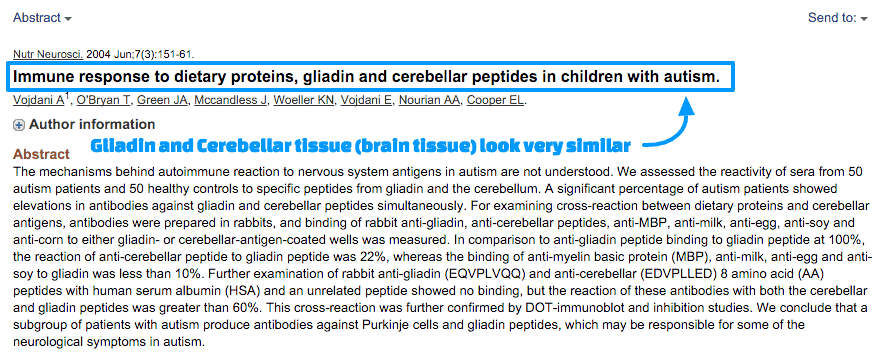
What does this mean for you?
It means that there is the potential for cross-reactivity between your immune system and your brain tissue.
It’s certainly possible that your body may develop antibodies to gluten particles which then cross-react with your brain and cause damage to brain tissue.
This may explain why some patients experience more brain fog than others (because not everyone with Hashimoto’s will have a gluten intolerance).
This isn’t the only cause of brain fog in those with Hashimoto’s, but it’s certainly worth considering in almost every patient.
DOWNLOAD FREE RESOURCES
Foods to Avoid if you Have Thyroid Problems:
I’ve found that these 10 foods cause the most problems for thyroid patients. Learn which foods you should avoid if you have thyroid disease of any type.
[thrive_2step id=’33860′]DOWNLOAD NOW[/thrive_2step]
The Complete List of Thyroid Lab tests:
The list includes optimal ranges, normal ranges, and the complete list of tests you need to diagnose and manage thyroid disease correctly!
[thrive_2step id=’33858′]DOWNLOAD NOW[/thrive_2step]
The Main Causes of Brain Inflammation and Brain Fog
Neurological symptoms are VERY common in Hashimoto’s (and hypothyroidism). Unfortunately, most Doctors tend to attribute them to aging, being “forgetful”, or depression.
If you have hypothyroidism you should never ignore symptoms relating to your brain because your brain may be an early indicator of a deeper problem.
As you might guess (like most things I talk about) neurological symptoms like brain fog, poor memory, and confusion can be caused by a number of different things.
Let’s talk about the most common causes of neurological symptoms in Hashimoto’s/hypothyroid patients and what you can do about it:
#1. Gluten Intolerance or Gluten Sensitivity
The protein gluten is found in certain substances such as wheat.
It’s the target of intense scrutiny and study recently because of its association with many different symptoms and disease states.
The condition Celiac disease is an autoimmune disease in which your immune system targets and attempts to destroy this protein.
This results in the production of antibodies that can damage your intestinal tract, brain, and other tissues.
Celiac disease (the autoimmune condition) should be differentiated from gluten intolerance or gluten sensitivity.
Gluten sensitivity is not an autoimmune phenomenon like Celiac disease, but instead a different condition entirely.
In this condition, your body doesn’t create antibodies to destroy gluten but it seems to be intolerant to the protein and reacts in other ways.
What’s interesting is that gluten intolerance (termed non-celiac gluten sensitivity or NCGS) seems to affect systems and tissues predominately outside of the gastrointestinal tract.
There is an emerging body of evidence that links gluten sensitivity to neurological and behavioral changes (2).
If you are someone who is experiencing brain fog related to either hypothyroidism or Hashimoto’s then it may be a good idea for a “gluten-free trial” for 60-90 days.
This is true even if you test negative for gluten antibodies because it’s possible that even if you don’t have the autoimmune condition Celiac disease, you may still have NCGS.
Not sure how to get started going gluten-free? See my 10-day thyroid reset for more info to jump-start your diet.
- Treatment: Remove gluten from your diet for at least 3 months. Follow your antibody levels and symptoms throughout this time period. Make sure you remove ALL sources of gluten, not just the obvious sources from bread/wheat, and remain 100% gluten-free for this time period. You can re-introduce gluten at that time to see if your symptoms revert back. This will help you know how to alter your diet for your body. Not everyone with Hashimoto’s or Hypothyroidism will need to be gluten-free.
#2. Insufficient Thyroid Hormone
It turns out that your brain tissue is exquisitely sensitive to even small changes in the amount of thyroid hormone in your body.
We know that Hashimoto’s is a disorder of the thyroid gland which may result in the condition known as hypothyroidism.
If you have Hashimoto’s and brain fog then you need to ensure that you are taking thyroid medication if necessary.
You can evaluate if you have sufficient thyroid hormone in your body with basic blood tests.
You’ll want to focus on the free circulating thyroid hormones free T3 and free T4.

If you are already taking thyroid medication then you also need to consider the idea of thyroid hormone resistance:
It is possible to have adequate thyroid hormone floating around in the bloodstream but still not enough thyroid hormone getting into your cells. If this happens it’s known as thyroid Resistance or tissue-level hypothyroidism (4).
Thyroid resistance can occur in any tissue in the body and some tissues seem to be more sensitive to it than others.
The sensitivity of tissues has to do with their ability to convert the inactive thyroid hormone T4 into the active thyroid hormone T3.
Some tissues contain enzymes that readily convert T4 into T3 while other tissues may not.
If you have thyroid resistance, and the symptoms above, it may be a good idea to have your free T3 to reverse T3 ratio checked. This ratio is sensitive in detecting thyroid resistance.
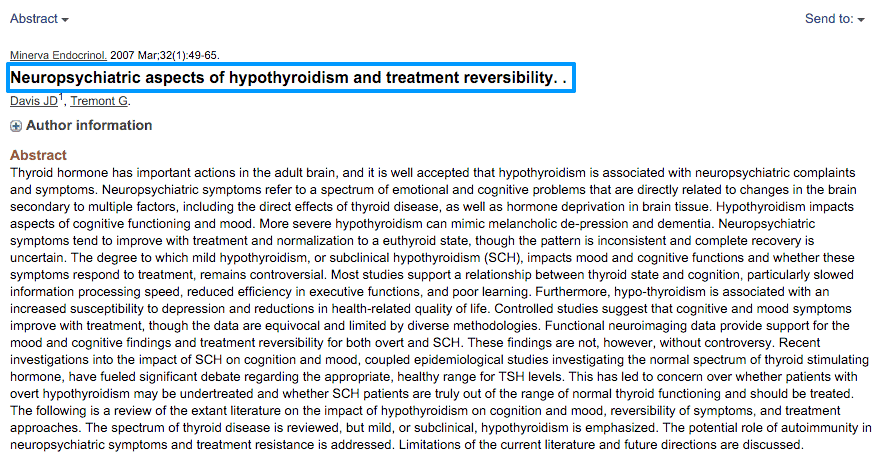
If your brain fog is due to brain tissue hypothyroidism (5), then you will have to increase the amount of thyroid hormone getting to your brain either by increasing your dose or switching to a different thyroid medication.
The use of certain supplements, such as those designed to improve thyroid hormone, may help improve thyroid function in your body and reduce your symptoms.
- Treatment: Check Free T3 levels and Reverse T3 levels. Calculate the ratio by dividing Free T3/Reverse T3. This ratio should be > 0.2. If you have thyroid resistance talk to your doctor about dosing your thyroid hormone or potentially changing your medication to include T3.
#3. Elevated Insulin Levels
Another important cause of brain fog and decreased cognition is the hormone insulin.
Insulin, which you may have heard of, is the hormone responsible (at least in part) for type II diabetes and many other serious medical conditions such as heart attack and stroke.
The condition of insulin resistance is also responsible, at least in part, for the climbing rates of obesity and weight gain in the United States.
If you have hypothyroidism or Hashimoto’s then the chances are high that you also suffer from the inability to lose weight.
It’s known that there is a connection between thyroid hormone and insulin levels, such that a disorder of thyroid hormone may increase your risk of developing insulin resistance.
This connection is one of the reasons (but not the only) that patients with thyroid disease suffer from weight gain and weight loss resistance.
But this connection is more concerning than just its effects on fat tissue.
High insulin levels not only cause you to gain weight but are also associated with an increased risk of Alzheimer’s and other neurological problems. In fact, the link is so strong that Alzheimer’s has been coined type 3 diabetes (6) in some studies.
When insulin levels are high your body has a special hormone called hormone-sensitive lipase is turned off (7). This hormone is the main way your body breaks down fat.
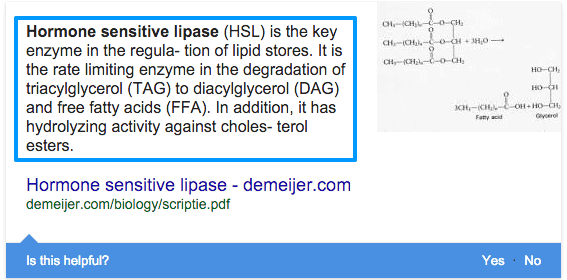
Insulin results in impaired cognitive function because it may “starve” your brain for energy by reducing the amount of glucose that is transported into your brain tissue.
As glucose levels rise in the bloodstream they tend to fall in brain tissue due to cellular resistance (a protective mechanism created by your body).
So with high insulin levels, not only will you NOT burn any fat for energy. Your brain is dependent upon glucose as a fuel source.
Couple this with the fact that chronically high levels of insulin cause systemic inflammation (and brain inflammation), and it’s a recipe for brain tissue damage and disorder.
Treating and addressing insulin resistance is an important factor if you have thyroid disease because it may improve your cognition and also your weight.
See my post on balancing hormone levels to reduce insulin and help you lose weight for more information.
- Treatment: If you are diabetic or pre-diabetic then you have insulin resistance by definition. If this is the case you may benefit from the therapies listed above or from a nutritional ketosis type of diet which has been shown to improve cognition and reduce your risk of neurodegenerative disorders. This diet isn’t for everyone, so proceed with caution. You may also find benefits in improving your diet to exclude refined carbohydrates, sugars, and bread/pasta. Going gluten-free has the benefit of automatically removing many of these potentially harmful food groups and may be worth considering for more than just gluten-related issues!
#4. Untreated Gut Imbalances and Intestinal Dysbiosis
There is clear evidence that the amount, ratio, and type of bacteria in your gut (8) can have a profound influence on your brain function. Your gut even produces neurotransmitters like serotonin.
Hashimoto’s and hypothyroidism both may impact the composition of this gut bacteria due to the influence that thyroid hormone has on intestinal kinetics.
Thyroid hormone helps your intestinal tract move forward through the motion of intestinal motility.

A lack of thyroid hormone may result in decreased transit time and predispose you to develop conditions such as constipation.
As your intestinal tract slows down the bacteria composition in your gut may change to favor bacteria that do better in this environment.
For this reason, many patients with hypothyroidism (as much as 50%) may have a condition known as small intestinal bacterial overgrowth (9).
If you have an imbalance in these bacteria or an overgrowth of bad bacteria, this can cause changes in brain function.
These imbalances may lead to symptoms such as depression, anxiety, and even fatigue.
How do you know if you have gut imbalances? If you have any of the following conditions it is likely your microbiome is out of balance: GERD or reflux, IBS or irritable bowel syndrome, IBD, constant gas, bloating after meals, diarrhea, and/or constipation.
It may be possible to influence and promote better intestinal health through certain therapies such as the food that you eat, taking thyroid medication, and using certain supplements (10).
- Treatment: Treating the gut requires a comprehensive program and should be tailored to your specific needs. That being said, probiotics and proteolytic enzymes should be a part of almost every regimen.
Brain-Based Fatigue
One other area worth mentioning is brain-based fatigue.
Brain-based fatigue should be differentiated from traditional fatigue even though they both present in a similar manner.
In brain-based fatigue, your brain becomes fatigued because of inflammation and de-conditioning which can present as either full-body fatigue or neurological changes (brain fog, poor concentration, or poor memory).
Brain-based fatigue is something you don’t want to miss because it can often be mistaken for full-body fatigue, and the treatment is entirely different.
Brain-based fatigue caused by inflammation can be treated using the steps outlined above.
But in addition to these, you can also “exercise” the brain with certain techniques which may improve neuro pathways.
Therapies such as neuro-feedback (11) and biofeedback may help “exercise” your brain and improve neuron connections.
Neurofeedback is a relatively new therapy that has shown promise in treating certain conditions that lead to brain fog, fatigue, and even ADHD (12).
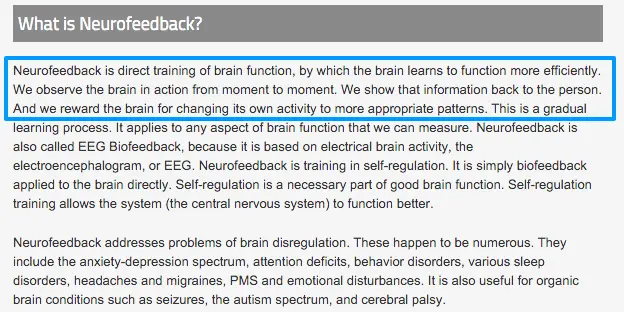
Conclusion
Brain fog is a condition that results in decreased mental cognition, mental clarity, and attention span.
Brain fog may be exacerbated by conditions such as Hashimoto’s thyroiditis or hypothyroidism.
Hashimoto’s thyroiditis may result in brain fog due to both low thyroid hormone levels and inflammation due to the autoimmune component of this disease.
You can improve your brain fog by attempting to improve your immune system and by improving thyroid hormone function in your body.
Making changes such as the foods that you eat, taking certain supplements, and taking the right thyroid medication can all potentially help improve your brain.
Now I want to hear from you:
Are you experiencing brain fog?
Do you suffer from Hashimoto’s thyroiditis?
What therapies have you tried to help alleviate your symptoms?
What has worked for you? What hasn’t?
Leave your comments and questions below!
Scientific References
#1. http://www.ncbi.nlm.nih.gov/pubmed/15526989
#2. http://www.ncbi.nlm.nih.gov/pmc/articles/PMC3641836/
#3. https://www.ncbi.nlm.nih.gov/pubmed/16405264
#4. https://www.ncbi.nlm.nih.gov/pmc/articles/PMC3169863/
#5. http://www.ncbi.nlm.nih.gov/pubmed/17353866
#6. http://www.ncbi.nlm.nih.gov/pmc/articles/PMC2769828/
#7. http://www.ncbi.nlm.nih.gov/pubmed/11549649
#8. http://www.ncbi.nlm.nih.gov/pmc/articles/PMC4367209/
#9. https://www.ncbi.nlm.nih.gov/pmc/articles/PMC4056127/
#10. https://www.ncbi.nlm.nih.gov/pmc/articles/PMC3539293/
#11. https://www.ncbi.nlm.nih.gov/pmc/articles/PMC4892319/
#12. https://www.ncbi.nlm.nih.gov/pubmed/11790917
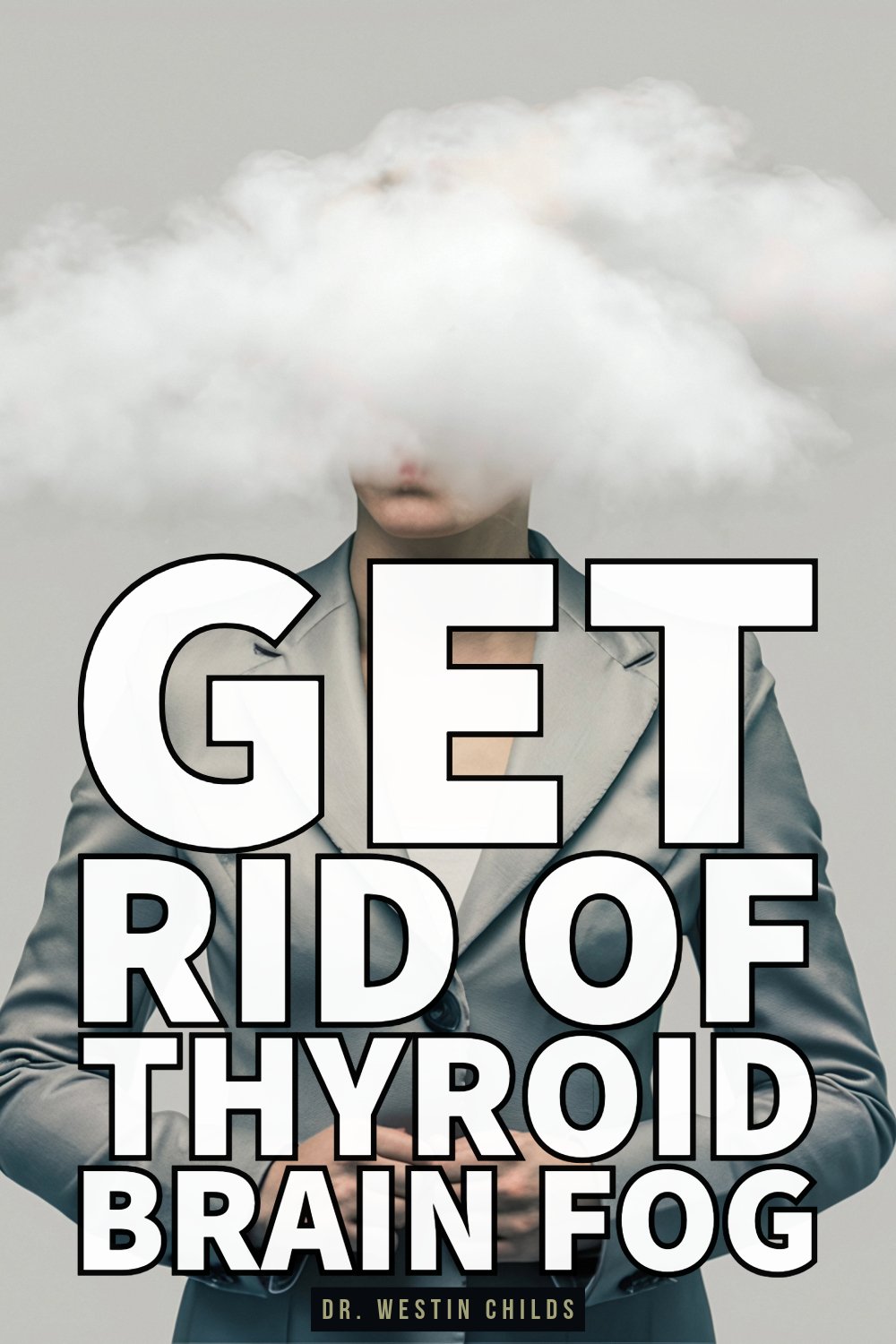
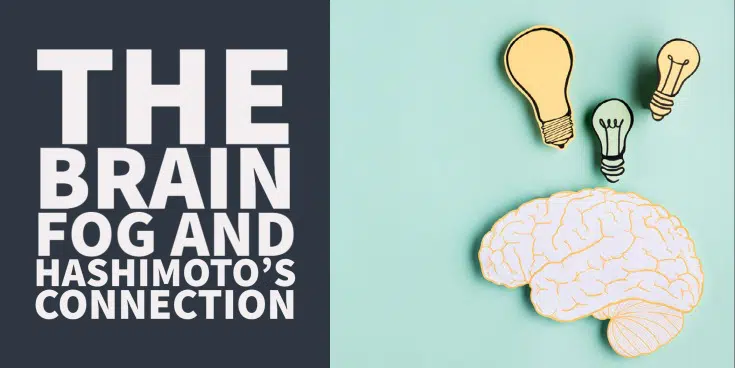
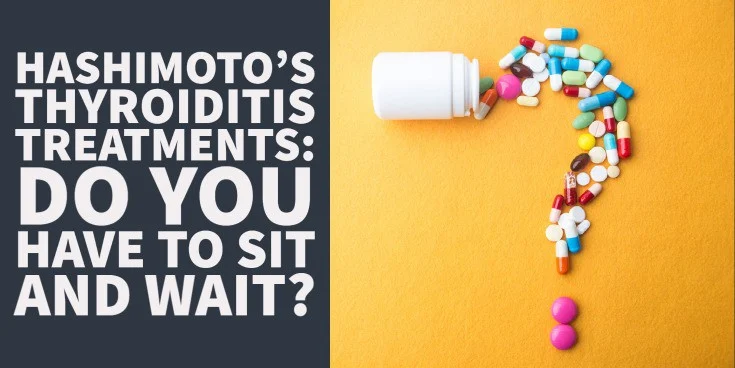
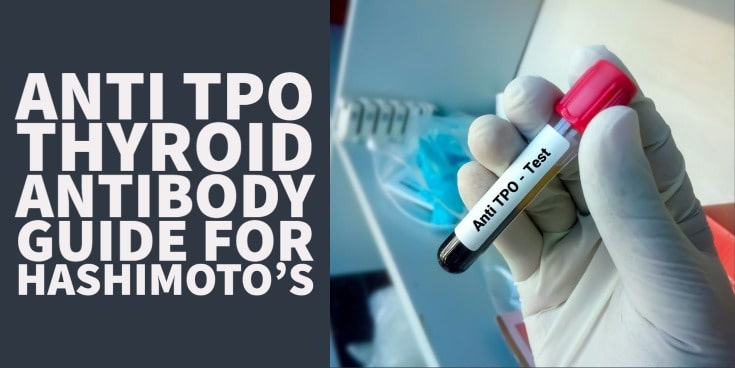

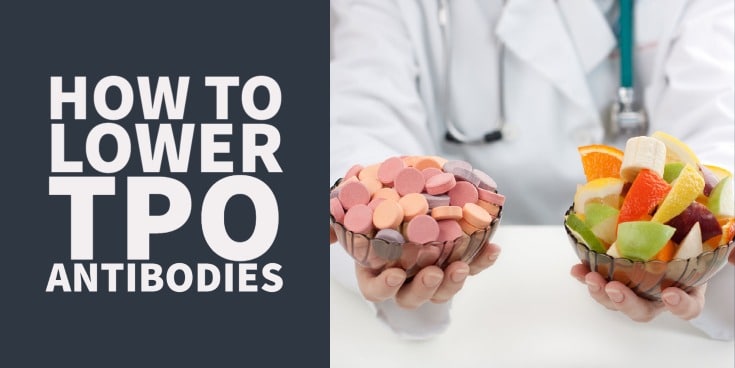
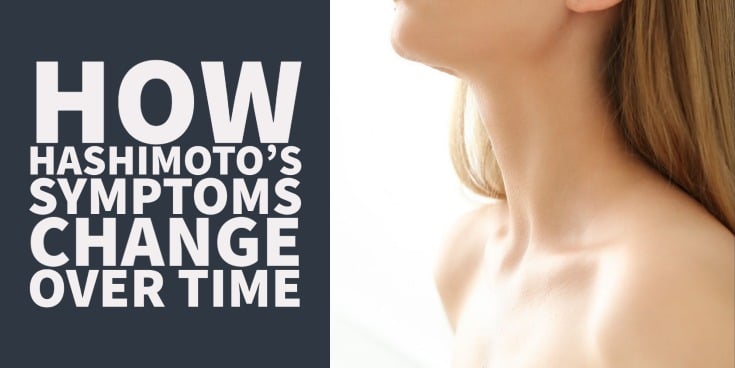
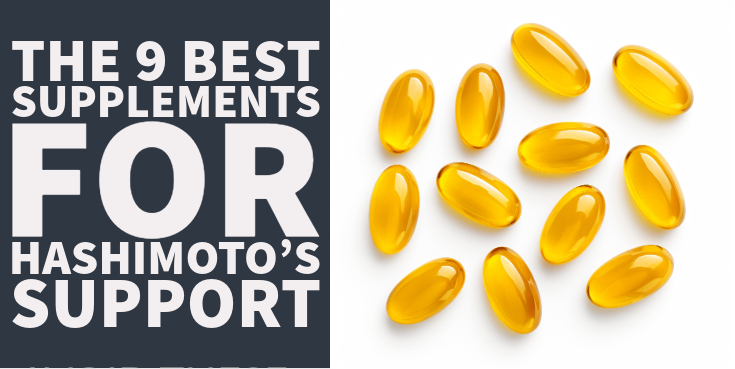

Dear Dr Childs,
I agree with your idea for choosing gluten free diet in Hashimoto’s patients, but don’t you think that the patient should firstly check if he doesn’t have concomitant coeliac disease, before starting gluten free diet? I am suggesting that, because this is a speculative issue and some of the health professionals think, that the symptoms might be caused by the early stage of coeliac disease in Hashimoto’s patients. I know that gluten sensitivity is something else, but the cause of such symptoms might be different in different patients.
Best wishes,
Aleksandra
Hey Aleksandra,
Great question! Here’s how I look at the situation:
To me it doesn’t really matter if someone has an autoimmune condition against gluten or if they are simply just sensitive. I frequently recommend that anyone with an autoimmune disease (of any type) avoid gluten. In my experience the vast majority of people who do this show improvement and very few (maybe 1 out of 100) seem to tolerate gluten ok. In those people, if they want to re-introduce gluten back in I let them do so.
For everyone else, if they are doing better off of the gluten, I’m not too concerned whether it’s because they have gluten sensitivity or celiac disease. I’m just happy that their symptoms have improved and their inflammation has reduced.
I should also point out that going gluten free is a good start for most people, however it’s not necessarily enough for everyone. The most important thing to realize is that every person needs to have an individualized diet that is tailored to their health problems.
My base diet will typically exclude dairy, gluten, soy and sugar products and from there I will make changes as necessary. It’s not uncommon for me to prescribe any of the following diets: nutritional ketosis, autoimmune paleo, Low fodmap’s/SCD/GAPs, or gluten free/dairy/soy free. From there I will make adjustments to macromolecules, like how many carbs should they eat, how much fat should they eat, how frequently should meals be, etc. Until the diet is fine tuned.
The topic of diet is complex, so when I write articles like these I try to make it applicable to as many people as possible.
Let me know if that isn’t clear!
Thanks for all of this info. I was born with hypothyroidism. My gland has never functioned at any level. I have taken Synthroid or levothyroxin for my entire life.
I have been gluten-free for nearly 5 years & am currently doing the AIP protocol to see what else is causing the inflammation/constipation,etc…
Just curious if I should stay with the Levothyroxin or try the new meds. My understanding is that the Armour and other meds are to stimulate the gland. Seems like that would be a mute point in my case.
Thanks for any assistance/recommendation on this. ? Dayna Y Jackson
Hey Dayna,
You’re welcome! I am happy to help.
Armour thyroid and Naturethroid don’t stimulate the gland, they actually provide your body with bioidentical T4 and T3 (in addition to T1 and T2). If used in the right doses they are more powerful than T4 alone which is what you are on.
Under normal circumstances your body pumps out both T4 and T3 in about an 80/20 ratio. And right now you are only supplying it with 100% of T4. I find that many patients feel better when I add in T3 to achieve that 80/20 ratio.
Thanks for the comment!
Dr. Childs
Thank you for this precious information ! I find tremendous amounts of information in US literature, sadly they didn’t get the memo yet in Belgium. They stick to the “old” way of treating thyroid problems. There are only five doctors in the whole country that have a different approach.
Anyway. 🙂
I’m a master student and have been diagnosed with Hashimoto’s three months ago.
In periods of stress, like exams, I feel the brain fog is getting worse. How can I deal with that? Are there supplements that can relieve my symptoms?
I’m already taking selenium, zinc, vitamine D, vitamin B complex and magnesium. I just ordered a supplement for adrenal fatigue. I’m also on thyroid medication and I’m going 100% gluten free, dairy free and soy free.
Many thanks in advance !
Greetings from Belgium 🙂
Hey Elisa,
Thanks for the comment and you are very welcome.
Outside of thyroid function make sure you consider adrenal support as well. Most patients improve with the combination of diet, B12, B6, T3 thyroid hormone and adrenal support. Occasionally I will have to add hydrocortisone as well, but that’s uncommon.
Hi,
So I guess i’ll just wait until the new supplement kick in ! 🙂 Many thanks again !
I was diagnosed 2 years ago am 46. I have brain fog can not get an overview of things nor get things done and am soooooo tired – I have horses that I love and don’t even manage to feed them. I can. It concentrate and forget things – dates, appointments etc. I am a strong person with a high profile job (until a year ago) I feel sorry for my kids and other half. I am on 100mg of levoroxine. My hair falls out less. I run regularly but it hurts my joints and not my muscles oddly. I eat everything but will try gluten free. I actually eat a lot of bread, cereals and sugar and Diet Coke to stay awake. I have also had a scar I have kept picking for years not sure if the body trying to heal that bears any relation. Some days i am ok for a few hours and get loads done but love my bed which us so wrong. Don’t actually sleep very well. What other than gluten free can I do to improve my irritating fatigue (I am not overweight but have gained weight) – I have periods in the day when I could easily fall asleep in the spot – have not linked it to food but think it tends to be after eating copious amounts of sugar or food
Hey Eva,
Avoiding sugar and caffeine would be a great place to start!
I had no idea that Hashimoto’s disease could lead the immune system to attack the brain tissue as well as the thyroid. It sounds like getting proper treatment as soon as possible would be crucial with this or any similar conditions. I know there’s a lot we still don’t know about the brain, but I would still feel more comfortable in the hands of a qualified physician than trying to deal with it on my own.
Interesting information, thank you! I have hashimotos, and the symptoms I experience are awful. Can adderrall help with brain fog and concentration issues?
Hi F.L.
Some patients do experience relief when using amphetamines, but I would also look into other therapies such as B vitamins and magnesium to see if they work first.
Did you ever try the adderrall? Did it work?
I just found out yesterday I have Hashimoto disease. I have all the symptoms of tiredness, inability to lose weight, brain fog, tired Eyes especially at night. I started gluten free and sugar free a couple of months ago and it diminished my acid reflux. All my thyroid tests were normal except the thyroglobulin was high.
Where do I go from here? Reading about thyroid cancer makes me very nervous. Do I need to see a endocrinologist? I see a doctor that did micronutrient testing and I am deficient and borderline in many things. He put me on many supplements. He has also done a gene testing for the Mthfr gene mutation among others. I haven’t received the results yet. Please give me some suggestions if you can.
Feeling overwhelmed
Bonnie
Is it possible to very confused after being sick (food poisoned) and not to be able to take NDT for some days? Does it go fast out of body. I only took a small amount of t3 because I got the idea I was poisoned of the NDT. (I got paranoid).
Hi May-Lisbeth,
Yes, it’s quite possible to have mental status changes both after being sick and if you aren’t taking your thyroid medication appropriately. These are not very common but they increase in incidence as you get older.
Hi, I have a question? would it be worth it to treat brain fog similarly to the way you would treat Hashimoto’s encephalopathy? One treatment is plasmapheresis and the other one is a short treatment of steroids. I really don’t want to take steroids but I also would like to save my brain.
Hi there,
Probably not. The etiology of brain fog is different from that of the encephalopathy.
Very grateful for your presentation of information!
Brain not in gear yet this morning so not saying more.
Have had hashimotos & Hyprothyrodism for over 11 years, I have constant brain fog and memory issues. Was in a very high paced job, now I feel like I cannot function. I am currently taking Armour 75 mcg a day. I could not take other medications. I function better on a higher does, but they inform me I will damage my organs from being in a hyperactive state for a long time. I am 47 years old and have an 11 and 3 years old I need to be healthy for children. They do keep telling me I am depressed and try to put me on meds. I do not sleep well either. Did a sleep study and they say I do not go into a deep sleep. I wake up constantly. I am gluten-free and low sugar diet no soy and such. No processed foods. HELP I take B 2 and magnesium.
Hello Dr. Child’s,
I have a good one for you. I was diagnosed with Diabetes in 2015. I actually should have died, because when I was rushed to the hospital, my sugar was 846. No I am not kidding.
That was in September of 2015. The tests didn’t show anything wrong with my thyroid.
Then in December of that same year, the Hashimotos showed up.
They thought I was a Diabetic 2, but I wasn’t. I actually have inherited the GAD Gene which gives you Diabetes 1.5. In other words, I technically am both 1 & 2.
I don’t eat a lot, no I am not over weight, I actually have always been under weight and skinny.
I don’t eat hardly any carbs, I stay between 22 to 36 carbs per meal. I currently am on 125 mcg of Levothyroxine, 30 units of Basaglar, and my carb to insulin ratio is 6 carbs to a unit of insulin. Of which because insurance companies are ridiculous, my short term insulin is always changing. Right now I am on Humalog, soon to be Amdalog, ( think I spelled it correctly.
It’s been 4 years now, and I still can’t get my A1C normalized, when they did the tests, they said my thyroid had a lot of scar tissue, so I have had Hash for about 30 years.
I am now 61, they still only do the two tsh tests, any suggestions or help for someone like me? I was diagnosed two weeks after my 57th birthday.
I should apologize for the long post, but I thought you should know everything I have been put through. From an endocrinologist telling me that my falling kidney numbers didn’t matter, to people calling my a hypochondriac.
Any thoughts or suggestions would be deeply appreciated.
Thank you so much in advance,
Audris A Chaney
I’m just going to be honest and say I believe I’m dying. My brain don’t work, I’m absolutely exhausted most of the time and I’m just about at the point of giving up. I hate life as it has been for the past few years diagnosed with Hashimoto’s autoimmune thyroiditis.
I’ve been gluten free for two years and it really seemed to help in the beginning, but now my numbers are all over the place and my inflammation is through the roof. It’s so high my SED rate has gone up and remains at about 80-ish.
I wish someone could help guide me on the right path. My anxiety is debilitating and I’m becoming very depressed. I’m 54 years old and have grandchildren I want to enjoy.
Please help if you can or tell me someone in my area that may be able to help me. I can’t keep going like this.
Thank you.
Hi Pamela,
I’m not sure I’m in the best position to help over the internet but it sounds like you definitely have an issue with your ESR at that level. It might be a good idea to start with a very restrictive diet to see if you can drop that inflammation through diet.
I am suffering from hashimotos from very young age. I am following gluten, dairy free diet. taking proper vitamin supplements that are required. still i have not seen any improvement in my brain fog. I could not focus while reading. My brain could not process things fastly. My performance is affected, i am about to give up my professional life, which i don’t wish to. Could you guide me how can i get my brain working back normally and efficiently.
Hi Hem,
It all starts with improving thyroid function! Please see this article which is going to be incredibly important for you going forward: https://www.restartmed.com/normal-thyroid-levels/